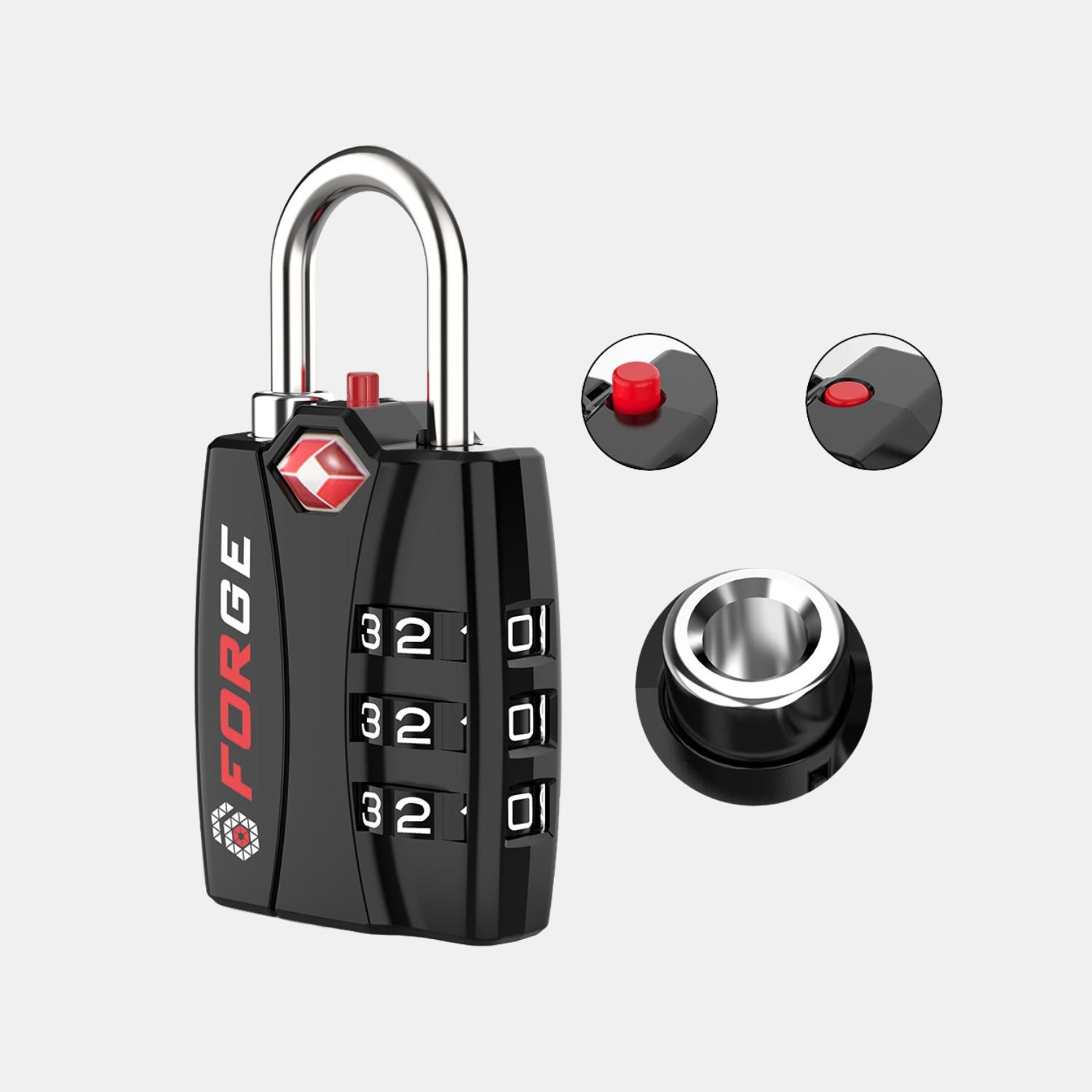Unlock the Secrets: Discover the Best Luggage Locks That Keep Your Belongings Safe!
Traveling is an adventure that opens the door to new experiences, cultures, and memories. However, it also comes with its fair share of concerns, particularly when it comes to the safety of our belongings. The fear of theft or losing valuables while on the go can dampen the excitement of any trip. This is where the importance of securing your luggage becomes paramount. A reliable lock for luggage not only provides peace of mind but also acts as a deterrent to potential thieves. In this article, we will explore the various types of luggage locks available, their unique features, and the benefits they offer, ensuring that your travel experience is as safe and enjoyable as possible.

Types of Luggage Locks
When it comes to luggage locks, travelers have several options to choose from, each with its own set of advantages and disadvantages. Understanding these different types can help you select the lock that best fits your travel needs. The three most common types are combination locks, key locks, and TSA-approved locks. Combination locks utilize a numeric or alphanumeric code to secure your belongings, eliminating the need for physical keys. On the other hand, traditional key locks rely on a physical key, which can be easily lost but often provide a reliable security measure. Lastly, TSA-approved locks are specifically designed for air travel, allowing Transportation Security Administration personnel to access your luggage without damaging the lock. Each type serves a distinct purpose, making it essential to evaluate which one aligns with your travel habits.
Combination Locks
Combination locks have gained popularity among travelers due to their convenience and efficiency. By using a series of numbers or symbols, these locks allow users to secure their luggage without the hassle of carrying an extra key. One of the main advantages of a combination lock is that there are no keys to lose, which can be a significant concern for many. However, it's important to choose a lock with a user-friendly mechanism and to memorize or securely store the combination to avoid being locked out of your belongings. A friend of mine once shared a travel mishap where he forgot his combination while in a foreign country. He had to spend extra time figuring out how to open his luggage, which added unnecessary stress to his trip!
Key Locks
Traditional key locks are the classic choice for securing luggage. They tend to be straightforward and reliable; however, they come with a catch—losing the key can be a nightmare. If you opt for a key lock, it's crucial to have a backup plan, such as keeping a spare key in a different location or using a keychain that attaches to your belongings. While some may appreciate the simplicity of a key lock, the risk of misplacing the key is a significant downside. In my experience, I've seen friends struggle at airports when they realize they've lost their luggage key, leading to delayed flights and added anxiety as they scramble to find a solution.
TSA-Approved Locks
For frequent flyers, TSA-approved locks are a must-have. These locks are designed to be opened by TSA agents without the use of force, allowing them to inspect your luggage without damaging your lock. This is particularly important for travelers who prioritize both security and convenience. Not only do TSA-approved locks provide peace of mind, but they also ensure that your belongings remain secure during airport screenings. Remember, a lock that is not TSA-approved may be cut off by security personnel if they need to inspect your bag, so consider this option for added protection during your travels.
Benefits of Using Luggage Locks
The benefits of using luggage locks extend beyond just securing your belongings. Firstly, having a lock can significantly enhance your overall travel security. It acts as a deterrent against potential theft, as thieves are less likely to target bags that are visibly secured. Additionally, using a lock can provide peace of mind, allowing you to focus on enjoying your journey rather than worrying about the safety of your possessions. Beyond the immediate security benefits, a good luggage lock can save you money in the long run. The cost of replacing stolen items can far exceed the price of a reliable lock, making it a worthwhile investment. Furthermore, locks can also prevent accidental openings during transit, ensuring that your items remain intact and organized.
How to Choose the Right Luggage Lock
Selecting the right luggage lock involves considering several factors tailored to your travel needs. Start by evaluating your travel habits; if you frequently fly, a TSA-approved lock may be your best bet. Next, think about the level of security you require. Combination locks might be ideal for those who are prone to losing keys, while key locks may work for those who prefer a more traditional approach. It’s also essential to consider the size and weight of the lock, especially if you are traveling with limited luggage space. Finally, personal preference plays a crucial role; choose a lock that resonates with your style and ease of use. Whether you’re a seasoned traveler or planning your first trip, investing in a quality luggage lock is an essential step towards safeguarding your belongings.
Final Thoughts on Luggage Security
In conclusion, selecting the right luggage lock can significantly enhance your travel experience by providing security and peace of mind. With various types of locks available, it's essential to evaluate your travel needs and preferences to make an informed decision. From combination locks to TSA-approved options, each type offers unique benefits that cater to different traveler requirements. As you prepare for your next adventure, remember that a small investment in a reliable luggage lock can go a long way in protecting your belongings, allowing you to focus on creating wonderful memories without the worry of theft or loss.








